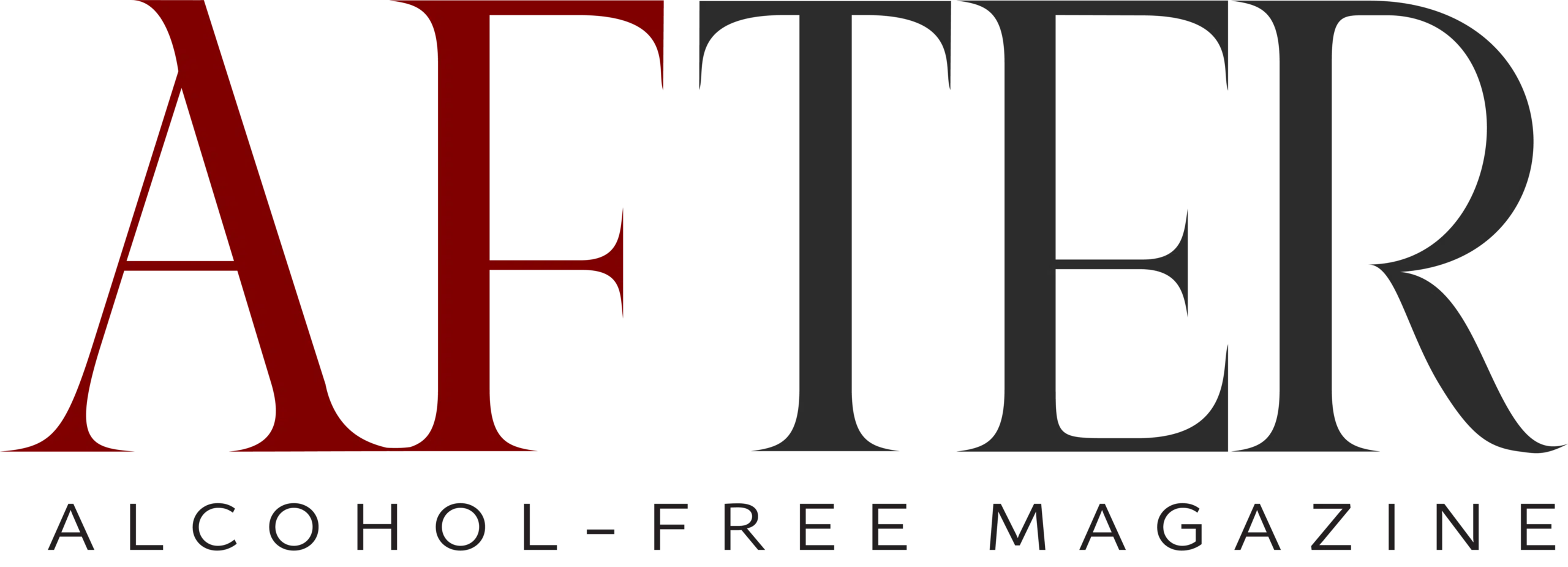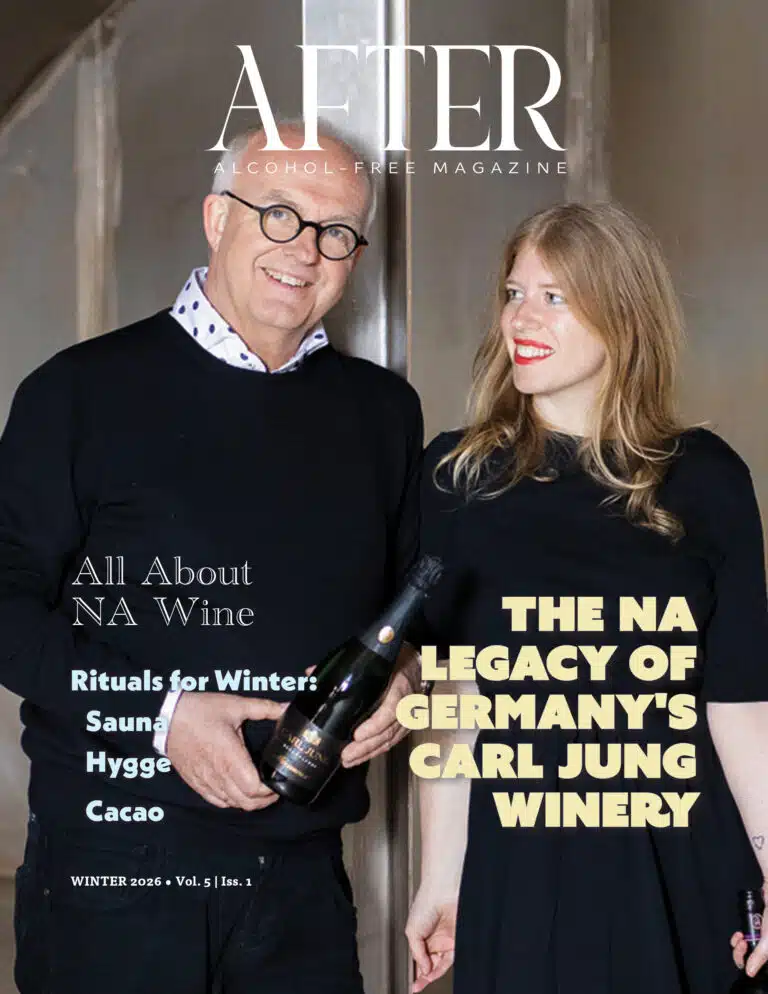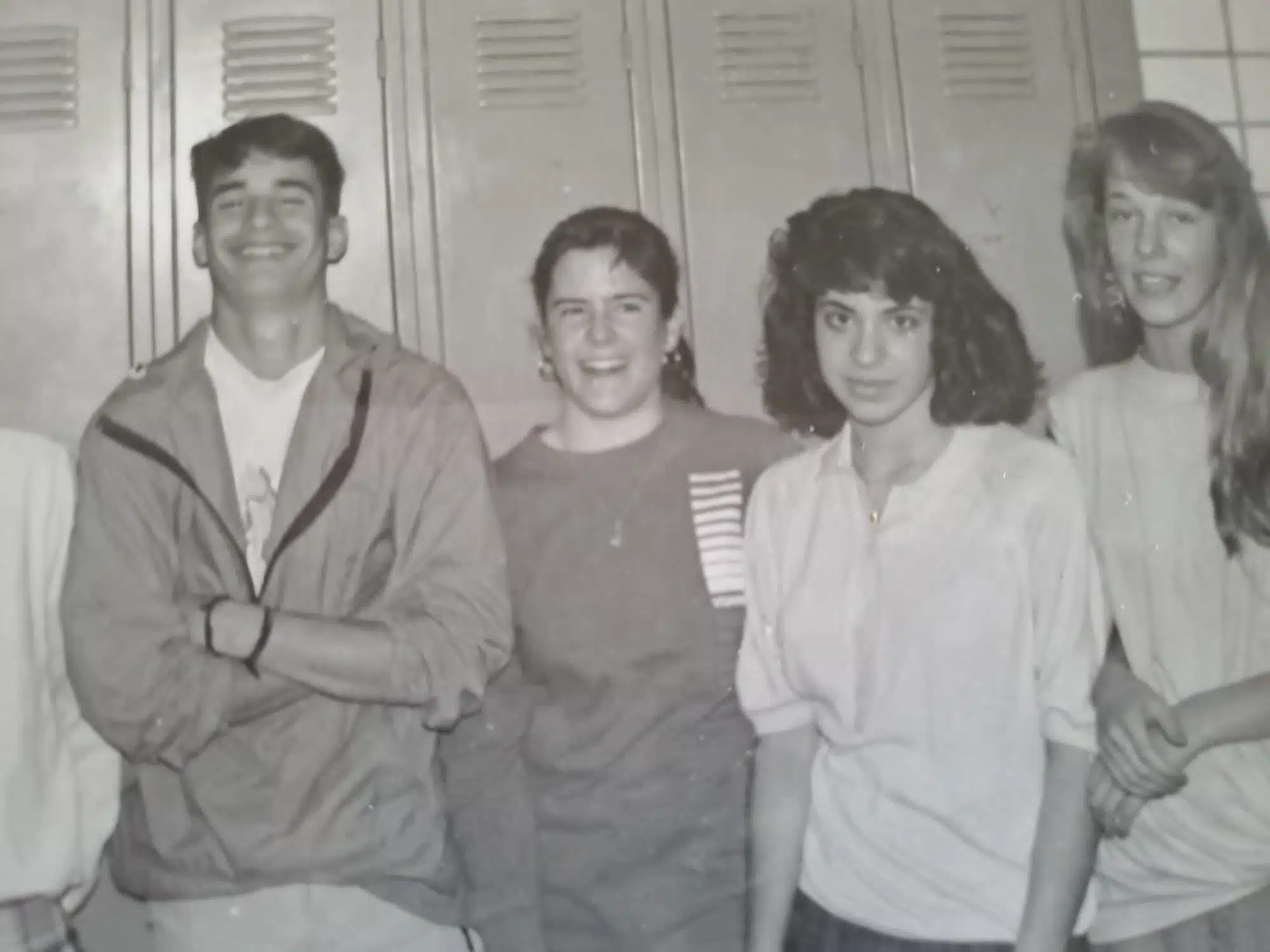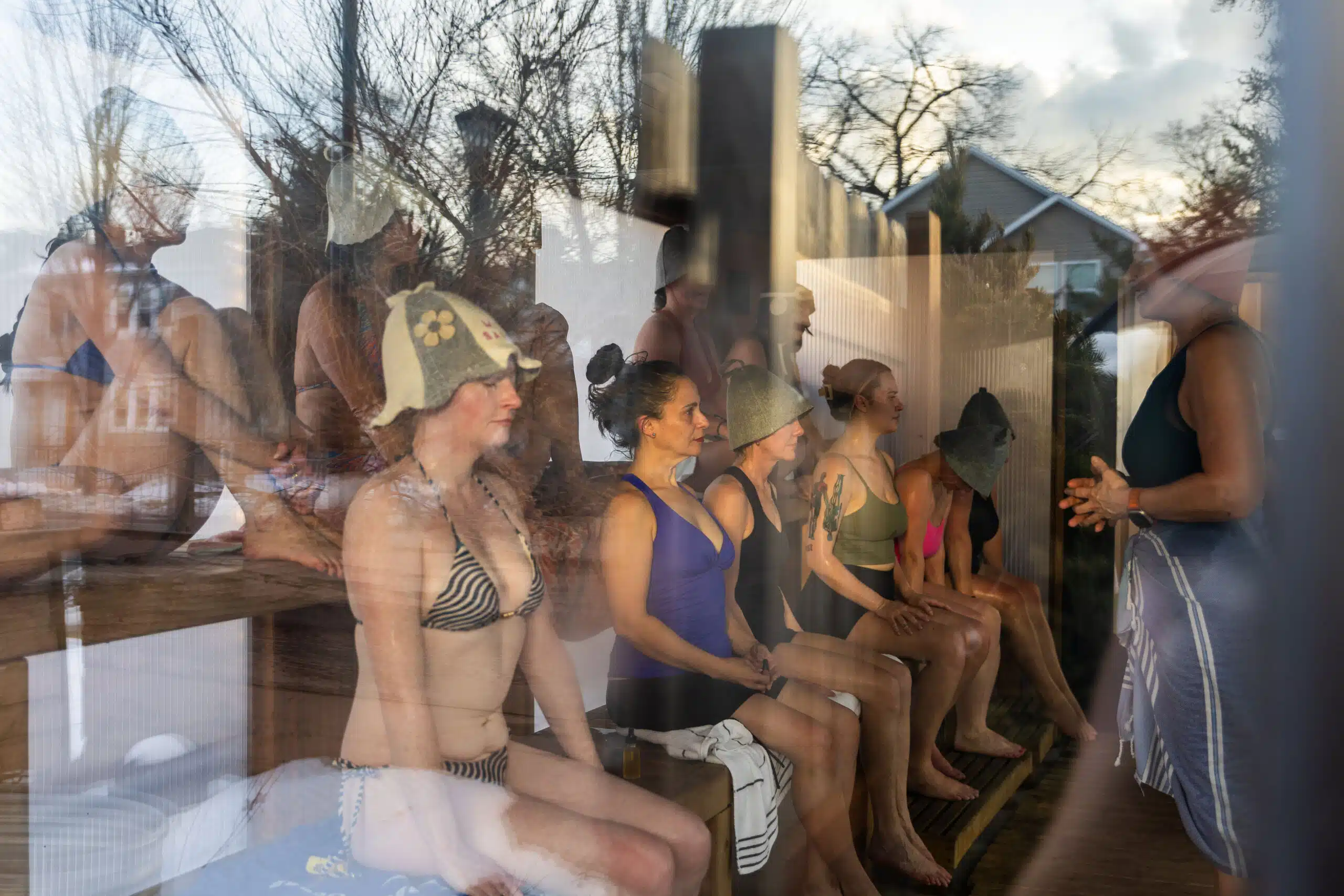Interview edited for space and clarity.
Nicole Hough for AFTER Magazine: Robbie, we’re so happy to have you as our cover and interview for this issue! Let’s get into your story. Where did this whole journey start for you?
Robbie Shaw: [The story] begins way back in my childhood. Drugs and alcohol [played a large part in my life growing up]. My father was an alcoholic—a very active, functioning alcoholic—throughout the majority of my childhood. He was also pretty successful, and those two things together created an interesting environment. There was this very pretty picture [on the outside], and then behind closed doors, it was a little ugly. My mom was very loving, [but] she came from nothing and then married a man who worked his way up and did well so all of the sudden they were highfalutin in the South and making money… You know what comes with that…it comes with some torture. You hear it a lot in the celebrity world. It comes with some ugly stuff. I grew up with a lot of opportunity and privilege, but it was an environment where there were inconsistent priorities that I don’t necessarily subscribe to or agree with now.
I first tried alcohol at 12 years old. I was in sixth grade and I vividly remember riding my bike down a hill in my neighborhood and looking up at the sky and seeing the streetlight and thinking, “Holy cow, this is great!” It lit me up and I was kind of off to the races after that. Throughout junior high and high school, I’d do a little acid and lots of drinking. I was an athlete, so I had that high competitiveness—the stress, the pressure, and the work-hard-play-hard kind of mentality. That was normal in most places across the country and [especially] in the South. It was like you see in movies—a lot of tomfoolery.
I [thrive in] situations where someone needs help for themselves or for a loved one…. I’m the problem-solver who figures out what to do…. They feel alone, secluded, and helpless, and…I can let them know that they’re not alone and that there’s hope and a way out.
When I got to college things began to get a little heavier. I played basketball but that began to take a backseat to partying and it started to catch up with me. My grades were falling, I didn’t care much about anything besides partying. I had started using cocaine and was drinking a lot. My sophomore year I was in a relationship with an older girl who I considered my first love, and I blew up the relationship because I was using. That was the first time that I truly got punched in the gut. Up to then, things typically worked out for me; I was popular, people liked me, and suddenly I lost this girlfriend and I couldn’t get her back. After that, anxiety began to creep into my life and it was ugly: panic attacks, panic disorder, throwing up in public, not being able to eat for days…. The only thing that would make it go away was alcohol. So, from ages 20 to 29 it was a pretty typical story: a lot of trouble, short stints in jail, DUI after DUI, job loss, no money, in and out of treatment…. I had moved to Manhattan after graduation, which everyone thought was a terrible idea for me, but the silver lining of all that was that [moving to New York] ultimately fast-tracked my recovery. It was a blast, but I hit rock bottom much, much quicker than I would have if I were still floundering around somewhere else. It would have just been prolonged.
So, I ended up in recovery at 29. I quit drinking and haven’t had a sip in almost 18 years now. I hold that very, very close to my heart. Alcohol was always in my family and was my Achilles’ heel, just like it was my dad’s and other family members’. I lost a couple of cousins to car crashes and overdose and just ugly stuff that all stemmed from alcohol, so I’m very proud of the fact that I haven’t had a sip in 18 years. I’ll give you one small caveat because I have had other issues [during that time]—marijuana has crept back into my life at times, which we can talk about too.
N: Do you think there are special challenges that come with realizing you have a problem at such a young age? I imagine everyone around you is telling you, “You’re just a normal college student. That’s what we do,” and it’s harder to recognize what’s going on.
R: Definitely, yes. And even more so back then. I think people are a little more aware about it now. There’s more education, people understand more about what addiction looks like, and younger generations are more aware about wellness. But I agree when you’re young and you’re having fun and the world is your oyster you can’t imagine giving that up, no matter what the consequences are. For me, drinking was all I knew. It was all my friends. It was my identity. It was everything.
N: So you were in recovery at 29 and at what point did you decide to work in the mental health and recovery space?
My opinion is that marijuana is highly addictive and that to deny that is a disservice. I believe anything that makes you feel that good is addictive. If food, gambling, and playing cards can be addictive, then marijuana is addictive.
R: When I came out of my final treatment, I didn’t have much to show for myself. I had worked on Wall Street and for a couple of startups, but my identity had always been riddled with the haze of drinking and drugging. I didn’t really know who I was, and whoever that was, I didn’t really like him. So I thought, “What else do I know better than what I’ve been doing for a decade? Why don’t I go into mental health?” My now wife was doing her residency in Portland, Maine, so I took a few pre-requisite courses and then I applied to the University of Southern Maine for clinical mental health counseling. Two years later, I graduated [with my master’s] with a 4.0, after I’d previously failed out of college three times.
After school, I took a six-year break to raise my daughter. When I started up again I realized I didn’t want to be a therapist or sit in an office. Coaching was kind of the new thing [at the time] and I started to hear about recovery and sobriety coaches and some credentialing and training programs that were cropping up [in that area] and I said, “I think that’s my calling!” I was especially drawn to work in addiction crisis management. For some reason, I’m drawn to those kinds of high-pressure situations. It’s not that I like it, per se. It’s not fun. I’m just good at it. I’m comfortable in the chaos. The calls I get are situations where someone needs help for themselves or for a loved one; calls like, “My husband is on the floor and cracked his head open. What do I do?” or “My son hasn’t come home in three days. Can you help me find him?” I’m the problem-solver who figures out what to do: Do you need an interventionist? Do you need an ambulance? Do you need to call a therapist and set up an appointment for next week? It could be a lot of different things.
N: I think it takes a special kind of person to do that kind of work. How did you know where to begin?
R: It came by trial and error. If somebody calls with that kind of situation, it’s like, “Okay, relax, remain calm. I’ll be there in a minute, and we’ll figure this out.” I’ve got a couple people I can call for guidance but what people usually need most in that moment is someone who’s calm. They feel alone, secluded and helpless and that’s what I can help with. I can let them know that they’re not alone and that there’s hope and a way out of this. It lights me up when I see that realization come over them.You can almost see the weight lifted and their face just lights up. Then it’s like, “Alright, now we’ve got something to work with here.”
N: Giving people hope is a big deal.
R: It is. Now everything that comes after that…that’s a whole other ball of wax. [Once the initial crisis is over] they need to get centered and figure out lots of things, and then comes the work of sustainable sobriety. The coaching I do is at the two ends of the process: I help people recognize what they need to do, then they go do the work to get help and get into recovery, and when they come back I help them to sustain their recovery. The middle stuff is the clinical therapy work that I decided not to do.
N: That makes so much sense. Those are basically the three steps of the journey. And the last one goes on forever…
R: Right, that’s the work.
N: You mentioned that you’ve had challenges with marijuana including, [as you shared with me previously,] a relapse with marijuana well into your sobriety. There are a lot of different opinions out there about what marijuana use means in terms of sobriety. Can you talk more about this?
R: I’m happy to talk about that. And I’m happy to be a little political about it. I’ll preface my answer by saying everybody’s got an opinion around this, and everybody’s situation is different in the world of addiction. We all want to simplify it, but there are just so many factors individually, genetically, biologically, and externally. It’s impossible to simplify this stuff.
My opinion is that marijuana is highly addictive and that to deny that is a disservice. I believe anything that makes you feel that good is addictive. If food, gambling, and playing cards can be addictive, then marijuana is addictive, so stop saying it’s not addictive. I was highly addicted to it to the point where I would wake up and couldn’t function without it.
Most people who are lenient about [marijuana] are operating from a harm-reduction mentality and consider it to be just less harmful than everything else. I can go into why it is harmful, but that’s not what we’re talking about. If we compare it to alcohol or any hard drugs or illegal drugs, then, yes, it is less harmful. The question really comes down to the individual and whether it’s causing issues for you or not, and I can’t determine that for people. For me personally it made me lazy and it made my brain spin. I could come up with every grand idea in the world and would execute on none of it. I wouldn’t go to class because I would get caught up doing something else. If I were doing that today I wouldn’t be able to hold a job, my relationships would all be screwed up, I just can’t do it.
If we look at the sobriety piece—and I know there’s “California Sober”—there is a definition of the word “sober” and for me that includes all mind-altering substances. People always say, “What about caffeine and nicotine?” Caffeine and nicotine may make you feel good in the moment but they don’t change the mood chemicals in your brain the way alcohol and drugs do. If you’re walking around saying you’re sober but you’re high on high-powered marijuana all day long, I have trouble calling you sober. That doesn’t necessarily mean that’s bad. It just means you’re kind of discrediting all the people who actually are fully sober.
N: I give a lot of merit to the idea that the definition of addiction has to do with how a particular substance is affecting your life. Is it filling a void [that you should be working on in therapy]? Are you able to stop? Those are the questions.
R: People say addiction means continuing to do something despite negative consequences. That’s the general way that I look at it. If I say I won’t do something and then I do it anyway that means I don’t have control. I just keep on going even though I know that I have something to do the next day and it’s going to affect me badly. That’s all the addict stuff.
N: That’s a great way to describe it. I think one of the best things about being sober is gaining the ability to be honest with yourself and following through on your promises to yourself.
R: That’s right. And man, there is something powerful about doing what you say you’re going to do. I mean, that’s self-discipline and there’s a lot of empowerment there.
N: And the confidence boost that comes with that is enormous.
R: Oh, and the confidence boost! Anxiety has always been a thing for me. Sometimes, I’ll feel a little panicked and wonder “Oh, God, is this going to escalate?” But when I do the things that I don’t really want to do but know I should do…a lot of them have to do with exercise and some kind of intentional suffering, maybe an ice bath or something…. When I do those things. I have a lot less anxiety.
We tried to make Champagne Problems very inclusive. If you talk about alcohol from a [general] wellness lens then [it’s more about], “How is alcohol affecting me?” “Does it affect my sleep, my caffeine cravings, my work production the next day?” “Does it make me want to drink the following night?”
N: Let’s talk about [your podcast] Champagne Problems…starting with its inception and what you’ve accomplished in the recovery space, and then where you’re going next.
R: Like I said before, alcohol has caused a lot of turmoil and problems in my life. I’ve seen all of this unnecessary suffering. I’ve seen families broken apart. There’s just a bunch of junk that is overlooked and denied and coined as “normal” [in our culture] and it drives me insane. That’s what I’m passionate about. At one point I thought I wanted to write a book [about all of that]. I tried to do it. It was just very hard for me to focus like that. I have a lot of ideas and I’m all over the place. Somebody suggested doing a podcast to get the information out and reach a wider range of people, and I was like, “Bam! Let’s do it!”
Champagne Problems started out small and then we moved into a professional studio. Our first really big guest was [former NBA player] Chris Herren who came on to talk about his battle with heroin addiction. One good guest leads to another, and that’s how it worked. We ended up getting [pro volleyball player and sports commentator] Gabby Reece on, and it evolved from there. Our mission was to educate people about alcohol by talking about it through a wellness lens. We didn’t want to talk about it through an addiction lens, because people see that in the title and say, “That’s not for me.” If you talk about alcohol from a wellness lens then [it’s more about], “How is alcohol affecting me?” “Does it affect my sleep, my caffeine cravings, my work production the next day?” “Does it make me want to drink the following night?” We tried to make Champagne Problems very inclusive. Everybody out there either drinks or knows someone who drinks. We’re all connected to that substance in some way. That was our mission going into it. And it worked. A lot of people listened.
Fast forward to a couple months ago, we felt like we had been talking a lot about how alcohol intersects with wellbeing—sleep, nutrition, exercise…that content is endless—and it had become kind of repetitive. We’ve done 90 episodes. So [we decided] to move Champagne Problems to a broader wellness and well-being focus, including best practices in all the areas of mental health, sleep, work performance, relationships, nutrition, physical exercise…. It’s all tied together. And of course we include alcohol in those conversations too. We just wanted to expand and go further out. We’re taking a little break right now and coming back in 2024 with a rebrand and big sponsor. We’ve got some big guests planned so we’re really excited to start announcing that stuff.
N: That’s very exciting. I love that it’s been such a natural progression. It makes a lot of sense in terms of sustaining sobriety—taking care of yourself, looking at your past trauma, working on mental health and wellbeing. If you address all of those things, then the recovery becomes so much easier.
R: Right, you’re working on the things that are creating the desire to drink.
N: So we talked a little bit in the past about this phenomenon where you give up alcohol and you work in the field, and suddenly your whole identity becomes “that sober guy.” How is that shifting for you?
R: I’ve been working through that a lot lately. Like it or not my identity is wrapped up in this. I’m proud that I’m living a positive, happy, health-consciousness life. I often tell people, “I don’t get to have a glass of wine after a tough month or a tough day. I don’t get to eat a gummy. There’s zero artificial relief and that’s tough.” I’m very proud of that, so I’ll never give that up as part of my identity. But as I move forward in a professional sense, I have shifted a little bit away from that. Once we created our own studio for Champagne Problems we recognized the demand for that kind of space here [in Charlotte, North Carolina] for podcasting and content development, so I created this new studio and a brand new business helping other local businesses with content creation, in addition to the new Champagne Problems. I just [felt it was time] to leave “Robbie Shaw the sober guy,” “Robbie Shaw the sober coach,” “Robbie Shaw the alcohol expert,” and get that out of my tagline. I’m still so proud of it, but I’m ready to move on a little bit from that.
N: I love when this kind of path unfolds, like all these content creation and podcast skills resulted, indirectly, from your recovery and led to this new business. It’s so cool to see those threads where life all makes sense in hindsight.
R: If I were to whiteboard the timeline, you could just hit all these things that led from this to that. It’s really cool. I love the statement, “This will all make sense later.” I bring that up a lot because I work with a lot of younger people—I’ve got a bunch of nephews, I have my own daughter—and they go through tough times, things happen, and I can tell them this will all make sense later, and I explain why, and I use examples from my own life. It’s just really cool to look back at all the times when I was like, “What is this situation? This sucks,” or wondered why I was on a certain path in my life thinking, ‘What am I going to do?’ But I’ve learned that if that didn’t happen, then I wouldn’t be where I am now. And I’m pretty happy with where I am now.
The identity stuff is a great question though because so many people that are entering recovery or sobriety or going through any kind of change can use some serious guidance. Identity shifts inevitably happen in life and in recovery. When it was happening to me I was panicked and uncomfortable and thinking, ‘This isn’t me.’ You’re going to change throughout your life. And that identity piece is tough.
N: True. There’s a long period of time [in early recovery] where you’re like, “What the hell am I doing?” and you wonder if you can even do it, and then it sort of all comes together.
R: When you are wrapped up in addiction—maybe not even 24/7 full-blown rock-bottom type, but even a pretty functioning level where you’re looking back a year or two and everything’s a little hazy—and then when you have to give it up, it’s like, “Man, I’m not even sure who I am.” All those years are all wrapped up in either being hung over, or looking forward to the next time you can drink. When all that goes away, there’s this clean slate and that can be terrifying. It can also be exciting. If you have the right guidance and the right coach, it can be exciting. Now you get to recreate yourself.
N: This leads into our last question: Our motto at AFTER Magazine is “The best life begins AFTER saying goodbye to alcohol.” How would you characterize your AFTER?
R: Man, that’s a long, long list… There are two categories for me: There’s external and there’s internal. So external, after you clean up the destruction, relationships begin to rebuild and rekindle. You make amends and new genuine authentic relationships begin to develop. My now wife was my girlfriend at the time when I quit drinking. And I just can’t imagine what kind of relationship we would have if I were still under the influence. Alcohol changed me in a way where my relationships were not very authentic. I was very self-centered. I was always shifting around and very much agenda-oriented. So I didn’t have great relationships. Relationships to me are kind of everything now, including romantic relationships, family, brotherhood, sisterhood, fatherhood. That change has been exciting and really cool for me and it makes me feel whole.
So that’s the exernal piece. The internal part is the other piece. I battled low self-esteem, low confidence, [feelings of worthlessness] for a long time. Couple that with a critical inner voice and I felt very sluggish and scared. I told myself things like, “Nobody wants to hear from me.” All that stuff. Alcohol took away my sense of self. It took away my authentic relationships. And as soon as I got rid of [alcohol], those two things began to flourish.
N: I feel that. How fortunate to have that experience and transformation.
R: Totally. Now if we could just help people to not have to go so deep to get to those changes in their lives, then we’ll all have it figured out! ***
You can find Robbie Shaw in the following locations:
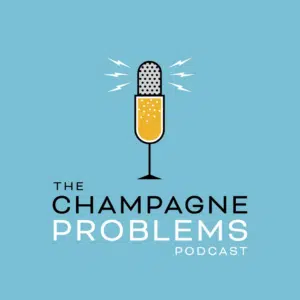
Champagne Problems Podcast
Developed by mental health and wellness professional Robbie Shaw, alongside co-hosts Patrick Balsley and Charlotte Cameron, Champagne Problems explores mental health, well-being, performance, longevity, sober-curiosity, and healing.
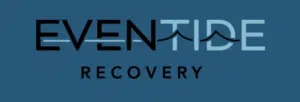
Eventide Recovery
“It is my experience that one size does not fit all when it comes to substance use. Problematic use, dependence and addiction can take many shapes and forms. At Eventide, we assess the individual within their respective circumstance and customize a recovery plan. This typically includes personal, relationship and/or professional goals, wellness strategy, education and spiritual practice.”
Robbie Shaw, Founder

EVRYBDY Studios
Other resources mentioned in this interview:
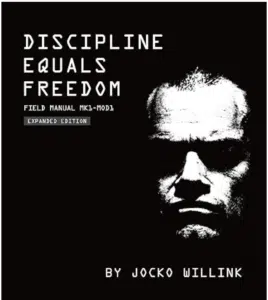
Discipline Equals Freedom: Field Manual Mk1-MOD1 by Jocko Willink
From Amazon: Jocko Willink’s methods for success were born in the SEAL Teams, where he spent most of his adult life, enlisting after high school and rising through the ranks to become the commander of the most highly decorated special operations unit of the war in Iraq. In Discipline Equals Freedom, the #1 New York Times bestselling coauthor of Extreme Ownership describes how he lives that mantra: the mental and physical disciplines he imposes on himself in order to achieve freedom in all aspects of life.
